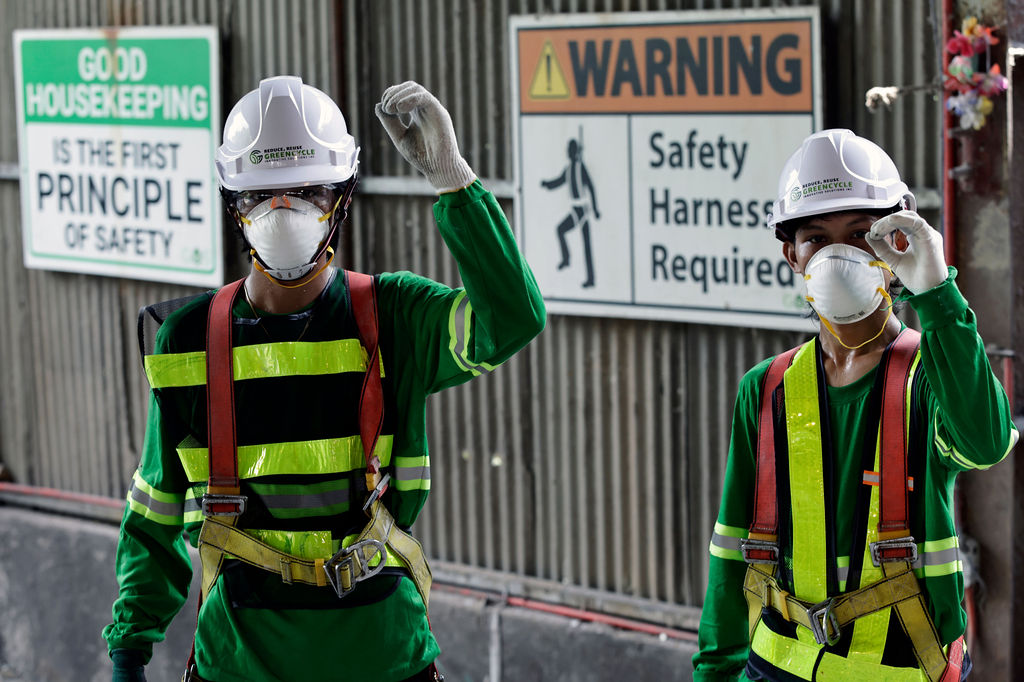These countries are putting recycling on the curriculum
Overview
Transitioning to a world without waste means giving the next generation the knowledge, skills, and motivation to tackle environmental issues. Here are 10 of the world’s top waste education programmes.
1. Colorado, US
Colorado is home to one of the oldest non-profit organisations in the US dedicated to recycling: Eco-Cycle. Since it was established by volunteers in 1976, it has developed a renowned recycling and environmental education programme. The programme provides recycling collection for schools in two districts, gives educational presentations (including age-appropriate subjects like lunchtime waste reduction) and provides valuable monthly feedback to each school on their progress.
2. Taiwan
Taiwan has long been a world leader in recycling education, having implemented waste management education in schools since the 1980s. The 2011 Environmental Education Act promotes ‘environmental literacy’ as a facet of lifelong learning; for instance, all students and staff in government and business must engage with at least four hours of environmental education every year.

3. Parramatta, NSW, Australia
Parramatta City Council is providing school waste education courses delivered by its waste collection contractor, Suez. The programme, which is taught by instructors with waste industry backgrounds, gives students a first-hand look inside the hidden world of waste management via tours of Suez facilities.
4. Hout Bay, South Africa
Community-based charity Thrive Hout Bay initiated its Zero Waste project to address a need to tackle pollution in the area. Its education programme—Sustainable Schools—emphasises learning through hands-on activities. For instance, students learn about composting through participation in community gardens, and about recycling by helping with their school recycling schemes.
5. Malaysia
Malaysia’s Global Environment Centre established its ‘SMART Ranger’ programme to engage students with natural resource management, beginning with recycling. The programme aims to equip young people with the knowledge and skills to lead environmental action. Among other activities, participants have taken part in a trial for a buyback scheme to incentivise recycling, receiving cash rewards in exchange for recyclables.

6. Portland, US
The City of Portland, Oregon, aims to reach material recovery rates of 90 per cent by 2030. A key area of action is education and information. The city’s youth education programme has a curriculum which ranges from practical household recycling to understanding the science of climate change, equipping future generations with not just the knowledge but also the mindset to tackle environmental challenges.
7. Taupō District, New Zealand
Tūrangi School in Taupō District has embraced a zero-waste (para kore) programme led by its students with assistance from staff. A sustainable farm on school grounds reuses waste from pigs, a goat, rabbits, chickens, and ducks, while the school’s resource recovery and recycling centre is so efficient that students say it could take on more waste. Through their involvement, students are learning skills beyond waste management, such as engineering, animal husbandry, and fundraising.

8. Dunbar, Scotland
From 2014 to 2017, Dunbar was among a handful of ‘Zero Waste Towns’ launched as part of the Zero Waste Scotland programme. This made Dunbar a hub of experimentation for schemes to reduce waste. The schools also received expert guidance, contributing to the success of their waste management systems. The town saw encouraging results, having halved waste going to landfill within a year.
9. Western Australia, Australia
Schools across Western Australia have access to the Waste Wise Schools programme, which focuses on reducing and recycling waste. The programme offers resources and support for implementing hands-on waste management projects in schools, such as recycling, composting, and worm farming. Schools involved with the programme organise collection of items which can be difficult to recycle, such as batteries, phones, glasses, and clothing.
10. Ghana
Ghana is a regional leader in tackling plastic waste as the first African country to join the Global Plastic Action Partnership. Recycle Up! Ghana runs numerous waste reduction schemes, including its Nationwide Waste Education Campaign. By the time the programme concludes in 2022, it aims to reach 81,000 school students to teach waste management, provide recycling facilities in schools, and instil a culture of waste reduction in the next generation.

Stay in the loop
Subscribe to our newsletter for the latest news and updates from the Alliance







